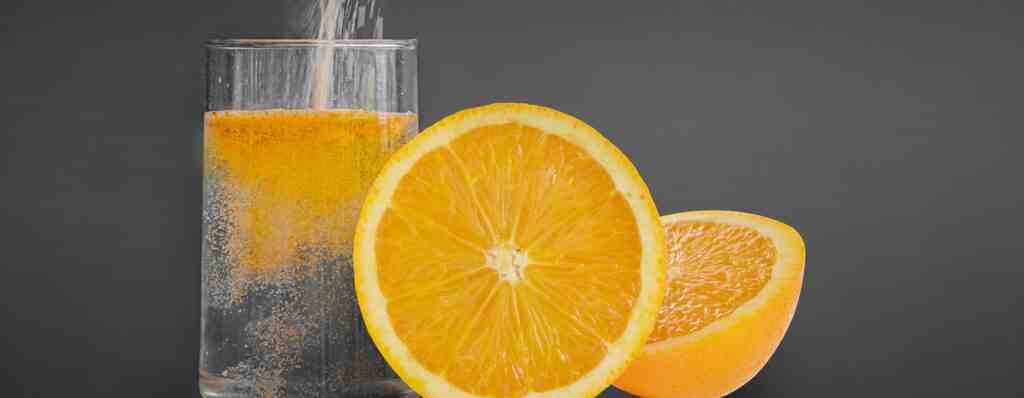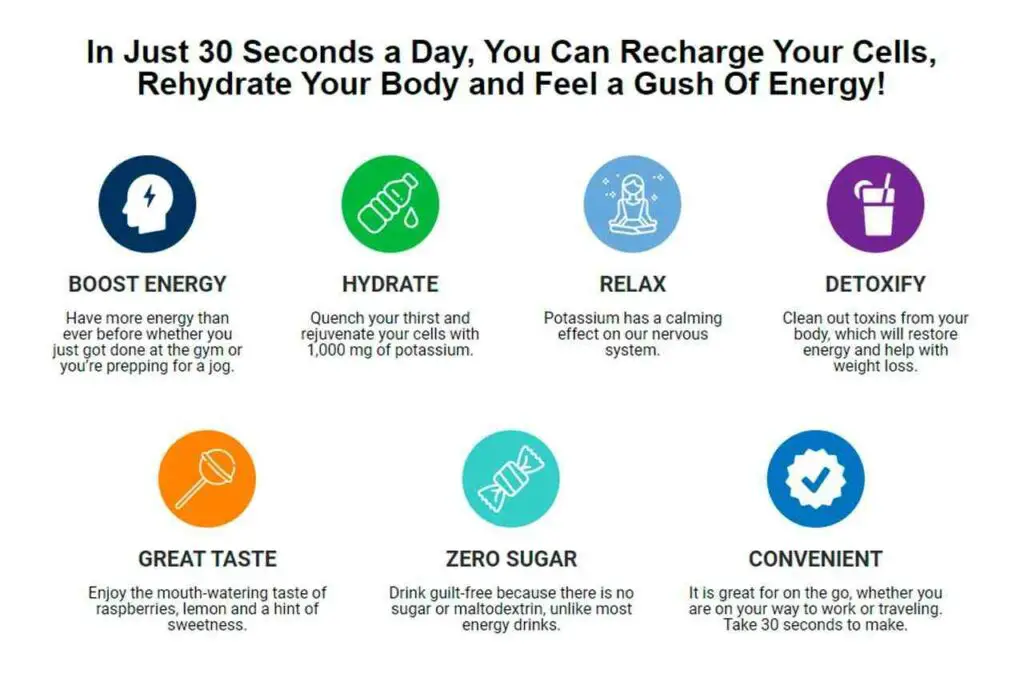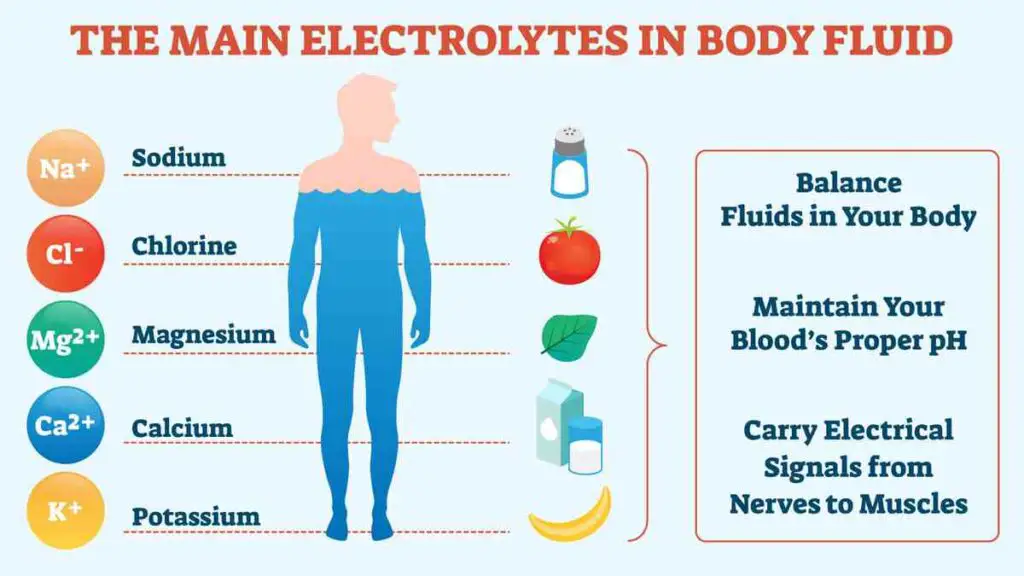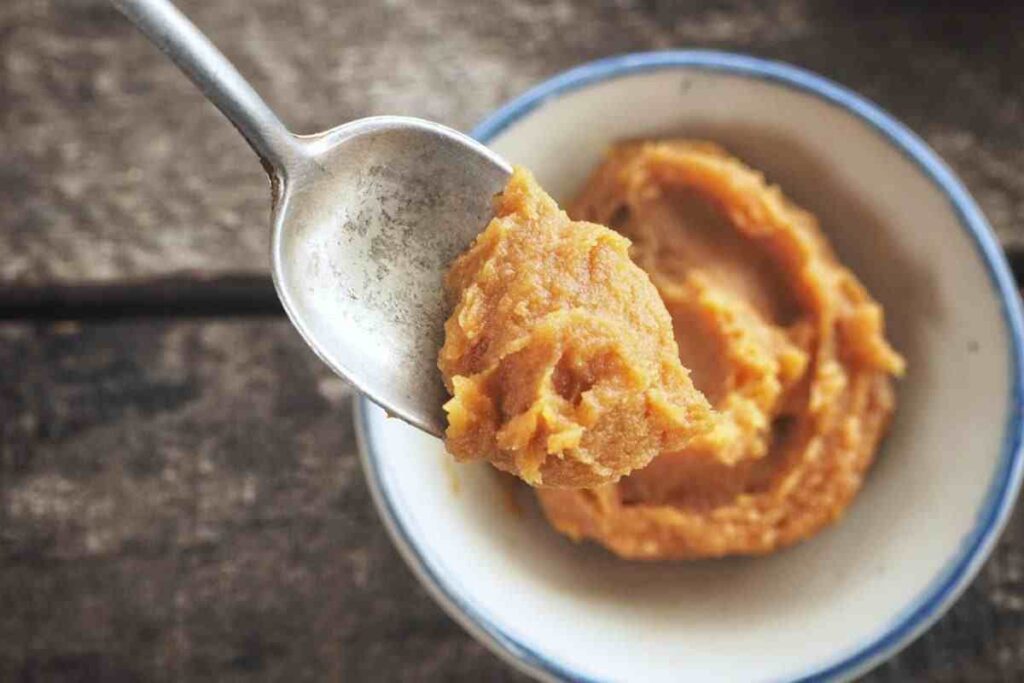In the quest for optimal health and wellness, many of us have come across the term ‘electrolyte powder’. But what exactly is it? And is it safe to consume every day? Electrolyte powders have gained popularity for their potential benefits, especially among athletes and those living in hot climates. They are often touted as a quick fix for dehydration, fatigue, and muscle recovery. But like any dietary supplement, it’s important to understand what you’re putting into your body and how it might affect you.
In this article, we will delve into the world of electrolyte powders, exploring their benefits, potential risks, and whether drink electrolyte powder every day is advisable. As always, it’s important to consult with a healthcare professional before making any significant changes to your diet or exercise routine. Let’s dive in!
What is Electrolyte Powder?

Electrolyte powder is a product that contains essential minerals that are dissolved in water or other liquids. Electrolytes are important for maintaining hydration, muscle function, nerve signaling, and pH balance in the body. Electrolyte powder can be used to replenish electrolytes that are lost due to sweating, vomiting, diarrhea, or other causes of dehydration.
Some common electrolytes that are found in electrolyte powder are sodium, potassium, chloride, calcium, magnesium, and phosphate. Some products may also contain carbohydrates, vitamins, antioxidants, caffeine, or other ingredients that may enhance performance, energy, or flavor.
Electrolyte powder can be beneficial for athletes, exercisers, travelers, or anyone who needs to stay hydrated and prevent electrolyte imbalances. However, not all electrolyte powders are created equal, and some may contain too much or too little of certain electrolytes, or have added sugars, artificial sweeteners, colors, or flavors that may not be desirable for some people.
Therefore, it is important to read the label carefully and choose an electrolyte powder that suits your needs and preferences. You may also consult your doctor or a registered dietitian before using electrolyte powder, especially if you have any medical conditions or dietary restrictions.
Health Benefits of Electrolyte Powder

Electrolyte powder can offer several health benefits, particularly in situations where there is an increased need for electrolyte replenishment. Here are some potential health benefits:
- Hydration: Electrolyte powders can help maintain proper fluid balance in the body. This is especially important during intense physical activities, hot weather, or situations where there is a risk of dehydration.
- Replenishment after Exercise: During exercise, especially strenuous or prolonged activities, the body can lose significant amounts of electrolytes through sweat. Electrolyte powders can help replace these lost minerals and support muscle function and recovery.
- Prevention of Electrolyte Imbalances: Certain medical conditions, medications, or illnesses can lead to electrolyte imbalances in the body. Electrolyte supplements may be recommended in these cases to help restore proper levels.
- Sodium Intake: You also should watch over-supplementing with sodium when using electrolyte powders. The Dietary Guidelines recommends 2,300 mg of sodium per day and some powders contain up to 1,000 mg per packet.
- Improved Performance: Athletes and individuals engaged in intense physical training may benefit from electrolyte supplementation to enhance endurance, reduce muscle cramps, and optimize overall performance.
- Support for Illness Recovery: During illnesses that involve vomiting, diarrhea, or fever, there is a risk of dehydration and electrolyte imbalances. Electrolyte powders can be useful in supporting recovery by replenishing lost fluids and minerals.
- Balanced pH Levels: Electrolytes play a role in maintaining the body’s acid-base balance. Adequate electrolyte levels help regulate the pH of bodily fluids, contributing to overall homeostasis.
- Reduced Muscle Cramps: Electrolyte imbalances, particularly low levels of potassium and magnesium, can contribute to muscle cramps. Electrolyte supplements, which often include these minerals, may help alleviate or prevent muscle cramping.
It’s important to note that while electrolyte powders can be beneficial in certain situations, they are not a replacement for a balanced and varied diet. Additionally, excessive intake of electrolytes can have adverse effects. Always follow recommended dosages and consult with a healthcare professional, especially if you have underlying health conditions or concerns.
Is it OK to Drink Electrolyte Powder Every day?
Drinking electrolyte powder every day may be OK for some people, but not for others. It depends on your individual needs, preferences, and health conditions. Here are some factors to consider before drinking electrolyte powder every day:
- Individual Needs: The daily need for electrolytes varies from person to person based on factors such as age, sex, weight, activity level, and overall health. If you have specific health concerns or conditions, it’s advisable to consult with a healthcare professional to determine your individual requirements.
- Dietary Intake: In many cases, individuals can meet their electrolyte needs through a balanced diet that includes a variety of fruits, vegetables, nuts, seeds, and other nutrient-rich foods. Relying solely on electrolyte supplements without addressing dietary habits may not be optimal for overall health.
- Fluid Intake: Electrolyte supplements are often consumed by mixing them with water. It’s crucial to consider your overall fluid intake, as excessive consumption of electrolytes without adequate hydration can have negative effects.
- Exercise and Sweating: If you are regularly engaging in intense physical activities that result in significant sweat loss, you may have an increased need for electrolyte replenishment. In such cases, using electrolyte supplements on days of vigorous exercise may be beneficial.
- Health Conditions: Individuals with certain medical conditions or those taking medications that affect electrolyte levels may require more careful monitoring and supplementation. Always consult with a healthcare professional if you have specific health concerns.
- Follow Dosage Instructions: If you choose to use electrolyte powder, it’s essential to follow the recommended dosage instructions on the product packaging. Excessive intake of electrolytes, especially in the form of supplements, can have adverse effects.
- Balance and Moderation: While electrolyte supplementation can be beneficial in specific circumstances, it’s important to strike a balance. Using these supplements excessively or unnecessarily may disrupt the body’s natural balance and lead to health issues.
In summary, drinking electrolyte powder every day can be safe and effective for some people, but not for others. It depends on your individual needs, preferences, and health conditions. You should consider your level of physical activity and sweating, your diet and other sources of electrolytes, your medical conditions and medications, and your personal preferences and goals before drinking electrolyte powder every day.
Risks of Consuming Electrolyte Powder Daily
Electrolyte powder can be beneficial for hydration and performance, but consuming it daily may have some potential risks. Some of the risks are:
- Electrolyte imbalance: Consuming too much or too little of certain electrolytes can disrupt the balance of fluids and minerals in the body. This can lead to symptoms such as confusion, nausea, delirium, and even coma and death.
- Overhydration: Drinking too many electrolytes can lead to overhydration, which can make athletes run slower and can be deadly.
- Kidney damage: Excess intake of electrolytes, especially sodium and potassium, can put a strain on the kidneys and cause them to work harder to filter out the excess. This can result in kidney stones, kidney failure, or chronic kidney disease.
- Heart problems: High levels of sodium and calcium can increase blood pressure and cause fluid retention, which can affect the heart’s function and rhythm. This can increase the risk of hypertension, heart failure, or cardiac arrest.
- Digestive issues: Drinking too much electrolyte powder can cause nausea, diarrhea, bloating, or cramping. This can affect the absorption of nutrients and the health of the gut microbiome.
- Waste of Money: Doctors say that regularly drinking electrolyte powders instead of plain water is a waste of money as the Western diet has enough electrolytes in it.
Therefore, it is important to use electrolyte powder only when needed and in moderation, and to consult your doctor before using any supplement. Electrolyte powder is not a substitute for a balanced diet and adequate hydration.
Who Should Use Electrolyte Powder?
Several groups of individuals may benefit from using electrolyte powder in certain circumstances. Here are some examples:
- Athletes and exercisers: Electrolyte powder can help prevent muscle cramps, fatigue, and dehydration during intense workouts or endurance events. Electrolyte powder can also enhance athletic performance by supporting energy production, tissue recovery, and cellular function.
- Outdoor Enthusiasts: People who spend extended periods outdoors, especially in hot and humid conditions, may experience increased fluid and electrolyte loss through sweating. Electrolyte supplementation can help prevent dehydration and maintain proper electrolyte balance.
- Individuals with Specific Health Conditions: Certain medical conditions, such as gastrointestinal disorders, kidney issues, and endocrine disorders, can lead to electrolyte imbalances. In these cases, electrolyte supplements may be recommended by healthcare professionals to help manage and prevent deficiencies.
- Illness Recovery: During illnesses that involve symptoms like vomiting, diarrhea, or fever, there is an increased risk of dehydration and electrolyte imbalances. Electrolyte powder can aid in the recovery process by replenishing lost fluids and minerals.
- Low-Carb or Ketogenic Dieters: Individuals following low-carbohydrate or ketogenic diets may experience changes in electrolyte balance, particularly with regard to sodium and potassium. Electrolyte supplements can help address potential imbalances during dietary changes.
- Elderly Individuals: Older adults may be at a higher risk of dehydration and electrolyte imbalances due to factors such as decreased thirst perception and kidney function. Electrolyte supplementation can be beneficial for maintaining proper hydration and mineral levels.
- Individuals in Hot Climates: Those living in or visiting hot and humid climates may experience increased sweating, leading to electrolyte loss. Electrolyte powder can be useful in these situations to prevent dehydration and related issues.
- Individuals Taking Medications: Certain medications, such as diuretics, may increase the excretion of electrolytes. People taking such medications may require additional electrolyte support to maintain balance.
BEST HEALTHY CARBS FOR ENERGY BOOST
It’s important to note that while these groups may benefit from electrolyte powder, it’s essential to use these supplements judiciously.
Alternatives to Electrolyte Powder

There are several natural alternatives to electrolyte powder that can help you maintain proper electrolyte balance in the body. Here are some options:
1. Whole Foods:
- Fruits: Bananas, oranges, melons, and berries are rich in potassium.
- Vegetables: Leafy greens, tomatoes, and potatoes contain potassium and other electrolytes.
- Dairy or Dairy Alternatives: Milk, yogurt, and fortified plant-based milk alternatives can provide calcium and other electrolytes.
2. Coconut Water:
Coconut water is a natural source of electrolytes, including potassium and sodium. It can be a good option for hydration.
3. Sports Drinks:
Commercially available sports drinks provide electrolytes, but they often contain added sugars and other ingredients. Choose carefully and be mindful of the sugar content.
4. Bone Broth:
Bone broth contains minerals like calcium, magnesium, and potassium, making it a nutritious option to support electrolyte balance.
5. Salted Foods:
Including moderate amounts of salted foods in your diet, such as salted nuts or seeds, can help replenish sodium levels.
6. Homemade Electrolyte Drinks:
Make your own electrolyte drink by mixing water with a pinch of salt, a squeeze of citrus juice (lemon or lime), and a touch of honey for sweetness.
7. Electrolyte-Rich Foods:
Include foods rich in specific electrolytes, such as avocados (potassium), nuts (magnesium), and spinach (calcium).
8. Electrolyte Tablets or Capsules:
These are similar to electrolyte powder but come in tablet or capsule form. They provide a convenient option for those who prefer a different format.
9. Herbal Teas:
Certain herbal teas, such as nettle or dandelion tea, may contain trace amounts of electrolytes and contribute to overall hydration.
It’s important to note that individual electrolyte needs vary, and it’s generally best to obtain nutrients from a well-balanced diet.
Benefits of Electrolyte Powder for Athletes

Electrolyte powder is a supplement that contains essential minerals that help the body perform various functions, especially after strenuous exercise. Some of the benefits of using electrolyte powder are:
- It provides better hydration by maintaining the balance of fluids and electrolytes in the body.
- It enhances athletic performance by replacing the electrolytes lost through sweat and helping the body utilize carbohydrates.
- It promotes tissue and muscle recovery by facilitating the delivery of nutrients and oxygen to the cells and the removal of waste products from the bloodstream.
- It supports healthy nerve and muscle function by regulating the electrical activity and contractions of the cells.
Electrolyte powder can be mixed with water or any drink of your choice and consumed before, during, or after exercise, depending on your needs and preferences. However, it is important to follow the recommended dosage and consult your doctor before using any supplement. Electrolyte powder is not a substitute for a balanced diet and adequate hydration.
Types of Electrolyte Powders
There are several types of electrolyte powders available in the market, each with its own unique composition and intended use. Here are a few types you might want to discuss in your article:
- Sports Electrolyte Powders: These are designed for athletes and those engaging in high-intensity workouts. They typically contain sodium, potassium, and magnesium to replenish the electrolytes lost through sweat. Some may also contain carbohydrates for energy.
- Wellness Electrolyte Powders: These are intended for everyday use to support overall wellness and hydration. They usually contain a balanced mix of essential electrolytes and may also include vitamins and minerals for added health benefits.
- Medical-Grade Electrolyte Powders: These are often used under medical supervision, such as during illness or recovery from surgery. They are formulated to treat or prevent severe dehydration and electrolyte imbalances.
- Natural or Organic Electrolyte Powders: These powders are made with natural or organic ingredients. They are often free from artificial colors, flavors, and sweeteners.
- Kids’ Electrolyte Powders: These are formulated specifically for children, often with lower levels of electrolytes and a more kid-friendly taste.
Remember, it’s always important to consult with a healthcare professional before starting any new dietary supplement, including electrolyte powders.
FAQs
Q 1. How do electrolyte powders differ from sports drinks?
Ans. While both provide electrolytes, electrolyte powders often come in a concentrated form that can be mixed with water, allowing for more control over the electrolyte intake without the added sugars found in some sports drinks.
Q 2. Can electrolyte powder be used for weight loss?
Ans. Electrolyte powder itself is not a weight loss product, but staying hydrated and maintaining electrolyte balance can be part of a healthy lifestyle, including weight management.
Q 3. Is electrolyte powder safe for children?
Ans. While electrolyte supplements are generally safe for children, it’s important to use products specifically formulated for their age group. Consult with a pediatrician before giving electrolyte supplements to children, especially in cases of illness or dehydration.
Q 4. Can electrolyte powder help prevent muscle cramps?
Ans. Yes, electrolyte powder, especially those containing potassium and magnesium, may help prevent muscle cramps by replenishing electrolytes lost during exercise.
Q 5. Can electrolyte powder be used during pregnancy or breastfeeding?
Ans. Pregnant or breastfeeding individuals should consult with their healthcare provider before using electrolyte powder. While hydration is crucial during these times, it’s essential to ensure the product is safe for both the mother and the baby.
Q 6. Can I make my own electrolyte solution at home?
Ans. Yes, a homemade electrolyte solution can be made using ingredients like salt, sugar, and water. However, it’s important to get the proportions right to avoid creating an imbalanced solution. Commercially available electrolyte powders provide a convenient and controlled option.
Conclusion
In conclusion, electrolyte powders can be a beneficial addition to your daily routine, especially for athletes and those recovering from illness. They offer a convenient way to replenish lost electrolytes and maintain hydration. However, like any dietary supplement, they should be used responsibly. Overconsumption can lead to health issues such as electrolyte imbalances and overhydration.
It’s also important to remember that electrolyte powders are not a substitute for a balanced diet and adequate water intake. Always consult with a healthcare professional before making any significant changes to your diet or exercise routine.

Good day, and welcome to Fitthour. My name is Shubham Vijay, and I am a certified personal trainer and nutrition coach with 6 years of experience in the fitness industry. At Fitthour, we specialize in types of training, such as strength training, cardio, or HIIT, and our mission is to help clients achieve their fitness goals and improve their overall health.




